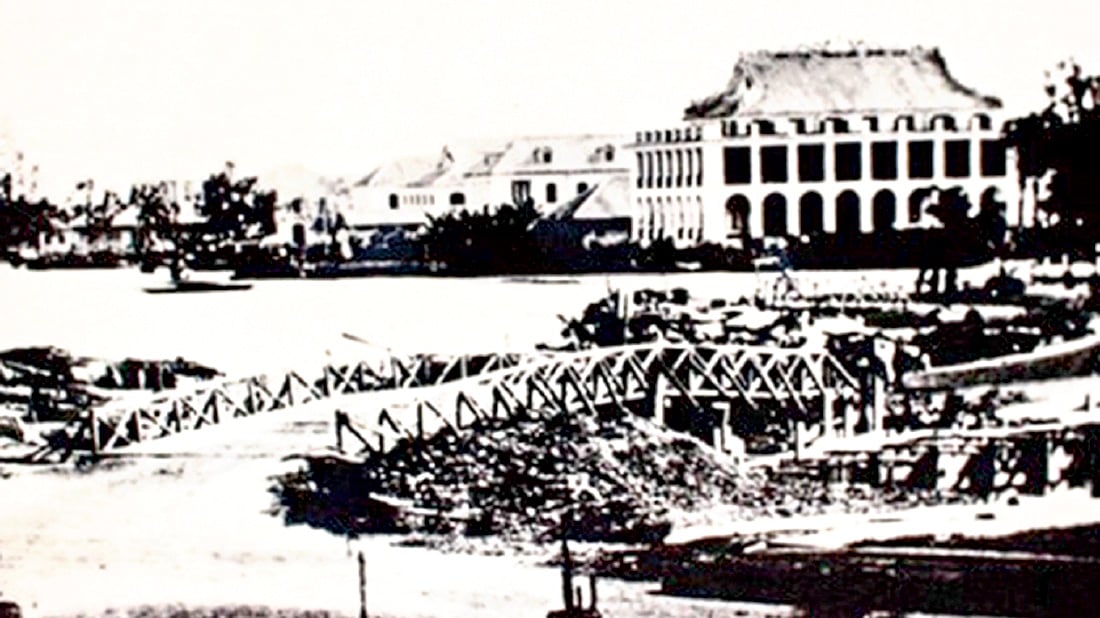 |
| Nha Rong Wharf in 1911 - where teacher Nguyen Tat Thanh left to find a way to save the country on June 5, 1911 |
Che Lan Vien did not write the poem "The Man in Search of the Shape of Water" when teacher Nguyen Tat Thanh left Ben Nha Rong, but 49 years later (in 1960) the poem was published and printed in the collection "Light and Alluvium" - Literature Publishing House - 1960.
Che Lan Vien wrote many works about Uncle Ho, but “The Man in Search of the Shape of the Country” is the best and most moving poem. Throughout the poem is the journey from the time the ship La Touche Treville took the patriotic young man on a long journey on the waves; the years of wandering “He went to ask all over the flags of America, Africa/ Free lands, slave skies”, until he found “The image of the Party embedded in the image of the Country”.
It can be seen that Che Lan Vien summarized in poetry the 30-year journey to find a way to save the country in a foreign land full of hardships and challenges until Uncle Ho encountered "... the Russian sun shining brightly in the East" and when: "The thesis came to Uncle Ho. And he cried"... Then, he brought the light of Lenin to Vietnam, led our people to make the August Revolution (1945), and regained the "shape of the Country" - the sacred name of Vietnam on the world map:
Vietnam, we call our name again
What happiness is greater than being reborn?
(Following Uncle Ho's footsteps - To Huu).
On the other hand, the poem also originated from Uncle Ho's memoir written on the occasion of the 90th anniversary of Lenin's birth (April 1960) "The path that led me to Leninism". The special thing that is also the value of the poem "The person who seeks the shape of the country" is that Che Lan Vien wrote the poem with contemplation and "inserted" the author's emotions and thoughts into the poem; there, in the midst of the country being lost, homes being destroyed, people suffering and enslaved; there were people who were indifferent to the fate of the country:
We sleep in narrow beds
My dream crushed my life
Happiness is contained in a beautiful dress
A quiet roof casts its shadow over the soul.
The poem begins: “The country is extremely beautiful. But Uncle Ho had to leave”… Uncle Ho left when the country was immersed in sorrow, when the Nguyen Dynasty was in its most fragile period of decline; when the resistance movement led by patriotic scholars responding to King Ham Nghi’s Can Vuong call broke out such as: Phan Dinh Phung, Hoang Hoa Tham, Dong Du Movement, Duy Tan of Phan Boi Chau, Phan Chu Trinh… were all eventually suppressed by the French colonialists, falling into a deadlock and failure. When:
Many paths people take, steps forward and backward
One big question: Where to go?
The five continents are deep, the sky is silent
The holy books have long faded.
(To Huu)
The failure of patriotic movements in our country in the late 19th century stemmed from many causes; the main cause was the lack of a political party and consistent leadership. Uncle Ho left to find a correct path and method to lead the people to repel foreign invaders and gain independence and freedom for the country.
And, in that journey, "When the shore gradually receded and the villages disappeared/ In all directions, there was not a single bamboo grove in sight", teacher Nguyen Tat Thanh's love for his country and people grew stronger and stronger, he felt:
The waves crashing under the ship are not the waves of my homeland.
The sky from now on is no longer the blue color of the homeland
Far from home, I understand the pain of home even more...
Facing the strangeness of a foreign land, Uncle Ho understood more deeply the feelings of the people who lost their country, felt sorry for his people who had to endure slavery and his heart ached when the country was immersed in sorrow. Che Lan Vien "inserted" his emotions into the verses to express the patriotic people's feelings towards Uncle Ho:
How to understand all the hearts of leaders
Find a path for the people to follow.
The journey of a patriotic youth with a specific, burning political goal; no illusions or fantasies. What he was looking for was “Not the image of a poem carved in stone/… Or an invisible being in the distant mist” but “He was looking for the shape of the Country”; looking for the gait and stance of the country and the Vietnamese people:
The way the whole nation walks
A glorious way for twenty-five million people.
During that journey, the patriotic young man experienced hardships, deprivation, cold…; worked to live, to travel and to carry out revolutionary activities. Che Lan Vien generalized Uncle Ho’s revolutionary activities during the years in a foreign land with these touching verses:
Do you remember, oh cold wind of Paris?
A pink brick, Uncle Ho resisted a whole season of ice
And the London fog, do you remember?
Drops of sweat in the middle of the night?...
Overcoming many hardships and difficulties with patriotism and burning revolutionary enthusiasm, the young patriot Nguyen Ai Quoc finally found "the Russian sun shining in the East"; and, he was happiest when he approached Lenin's Theses on the National and Colonial Questions:
The thesis came to Uncle Ho. And he cried.
Uncle Ho's tears fell on the word Lenin...
“Uncle Ho’s tears fell on the word Lenin” - An extremely beautiful poetic image! During his journey to find a way to save the country, this was the first time Uncle cried. The tears of a patriot were so sacred that they made anyone choke up! The uniqueness and talent of Che Lan Vien is that from an important political event, the author “breathed” into it emotions, personified historical values, so that in that sacred moment, happiness broke out and touched people’s hearts.
After "Uncle Ho's tears fall...", the next verse is a cry of laughter:
He shouted alone as if talking to the nation.
“Food and clothing are here! Happiness is here!”
The image of the Party is embedded in the image of the Country.
The first minute of crying is the minute Uncle Ho laughs...
“Uncle shouted…”. The verse is like a ripple of laughter, reminding us of the pure joy of a person who, after suffering too much pain, suddenly bursts into happiness! The happiness is so great; because it is not just one person’s happiness but the happiness of an entire nation! Uncle cried and Uncle laughed – a very romantic and extremely beautiful poetic image!...
The patriotic young man Nguyen Ai Quoc was happy and moved because he had found the historical truth, which was Marxism-Leninism, and only Marxism-Leninism could help oppressed peoples in the world and the Vietnamese people successfully carry out the struggle to expel foreign invaders and liberate the nation.
With romantic revolutionary verses, believing in a tomorrow when “The enemy is driven out. The blue sky becomes a song”… Che Lan Vien “painted” a bright future vision of the country and the Vietnamese people:
Electricity follows the moon into the workers' bedroom
The rustics became intellectuals
The dark laborers now turn into heroes…
The image of leader Nguyen Ai Quoc bringing “Lenin’s Theses” back to Vietnam; and “…Uncle Ho’s shadow kissing the soil” - the beginning of “the day of return” after 30 years away from the Fatherland; from here, he led the people to fight for independence and freedom for our nation:
Lenin's Theses Followed Him Back to His Homeland Vietnam
The border is still far away. But I see it has arrived.
Look, Uncle Ho's shadow is kissing the soil
Listening in the pink, the embryonic image of the country…
Che Lan Vien summarized the entire 30-year journey of beloved Uncle Ho to find a way to save the country with very touching poetic images. The poem is the deep gratitude of the entire Vietnamese people to the One who found the shape of the country...
Source: https://baolamdong.vn/van-hoa-nghe-thuat/202506/che-lan-vien-voi-nguoi-di-tim-hinh-cua-nuoc-0ac623b/



![[Photo] Hanoi morning of October 1: Prolonged flooding, people wade to work](https://vphoto.vietnam.vn/thumb/1200x675/vietnam/resource/IMAGE/2025/10/1/189be28938e3493fa26b2938efa2059e)




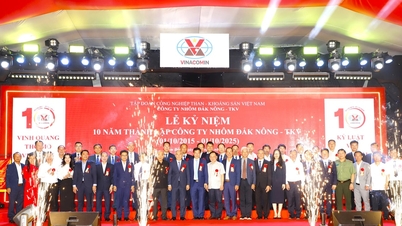





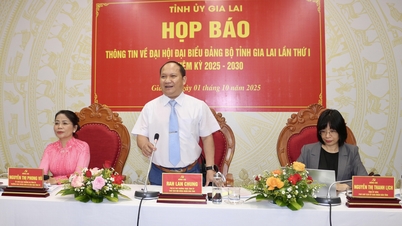
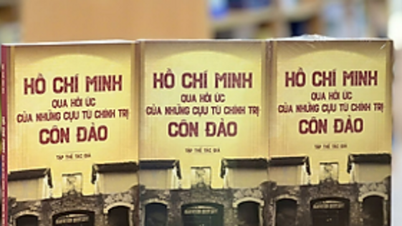





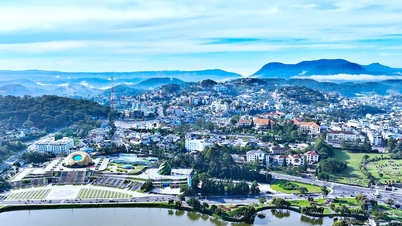

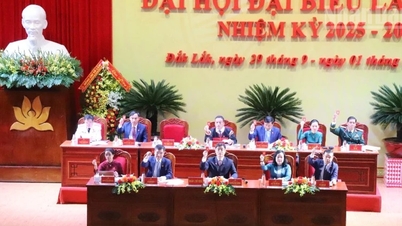

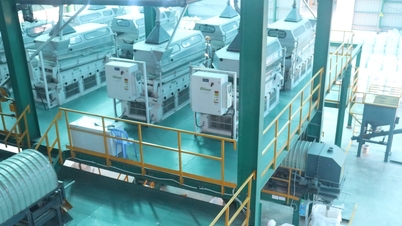
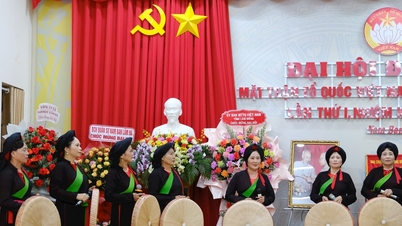
![[Photo] Panorama of the cable-stayed bridge, the final bottleneck of the Ben Luc-Long Thanh expressway](https://vphoto.vietnam.vn/thumb/1200x675/vietnam/resource/IMAGE/2025/9/30/391fdf21025541d6b2f092e49a17243f)





































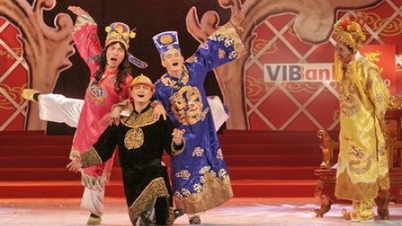

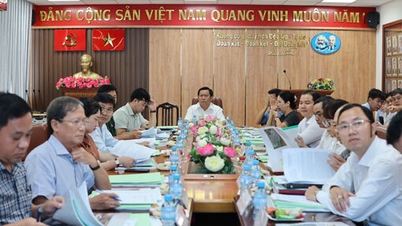





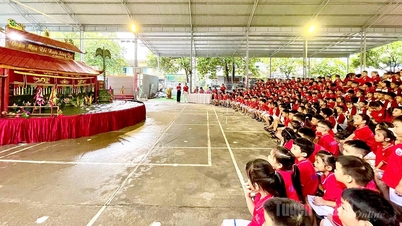














Comment (0)